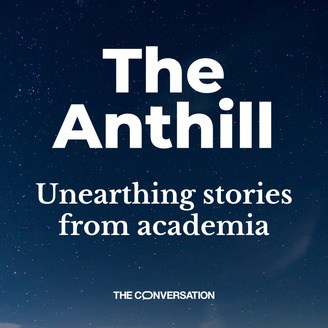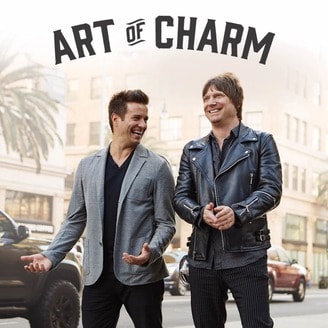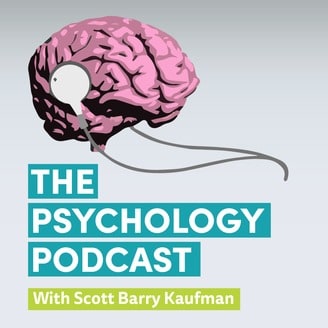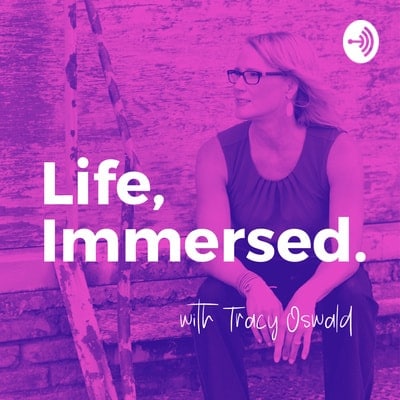The 7 Best Episodes for Talking About Conspiracy Theories

How do you know you’re being brainwashed?
I’ve made it a priority this year to reconnect with people who, for whatever reason, I’d lost touch with. It’s an idea I got from listening to the Jordan Harbinger Show, so once again, thank you podcasts.
I had the opportunity a few weeks ago to catch up a friend I hadn’t heard from since 2016. Now I know why.
After exchanging pleasantries and updates on the kids, the topic turned to the mutual exhaustion we were feeling over Coronavirus.
It became abundantly clear our conversation had wandered into talking about conspiracy theories.
Well, one of us recognized we were talking about conspiracy theories… my friend was talking about a reality detached from shared experience.
I’m not sure if I should have been surprised. Estimates vary, but some reputable sources put the number of Americans who at least think there’s something to conspiracy theories as high as 1 in 5. A 20% infection rate is, well, troubling…
This got me thinking about how to talk about conspiracy theories in general. They’re supposed to be fun. They are supposed to be something where, when you hear one, you think to yourself “oh yes, this is absurd on its face, let’s have a laugh.”
But that doesn’t seem to be where we’re at right now. What should be a healthy ability to suspend disbelief has morphed into ruined friendships and families. We don’t have the tools to broach the subject and only find out that we’re even in the conversation until after it’s too late.
How, then, do we build up a robust tool kit for talking about conspiracy theories? What are the skillsets we need to nurture in order to talk about conspiracy theories in a productive way?
They aren’t going away, they never will, but it does seem like they’re picking up some particularly maladaptive momentum that needs to be addressed.
Since this is one of those topics that are too big to conquer on its own without devoting our lives to the struggle, why not build a solid foundation with the help of podcasts?
Here are the 7 best podcast episodes for talking about conspiracy theories.
Recognition
When you’re fighting in the trenches every day, it can be difficult to remember what it is you’re fighting for. You lose the context. You lose a global perspective. As my wife is fond of saying, “you’ve lost the plot.” Gotta love the Britts.
So one of the first necessary skills to develop is the ability to recognize what’s real and what isn’t.

The Anthill – How to Spot a Conspiracy Theory
I’m going to cheat a bit off the bat because it’s that important. Rhetorical honesty be damned!
This “episode” is actually a five-episode series, but you’ll be so hooked you won’t notice that it’s actually in five parts. In the first episode, Dr. Peter Knight helps breakdown the three assumptions that make a conspiracy theory possible. And, shocker, you’ll recognize them.
Spend the time to listen to this episode first before moving onto the others. It’s an investment, but it’s worth it. Plus, they use the term “cock-up,” so you know that’s going to be entertaining.

James Altucher Show – 638 – The Fine Art of Baloney Detection
There’s a ton of garbage floating around. Take it from an expert storyteller and master of reinvention, James Altucher. If we can’t find a way to filter out what is complete nonsense and what is plausibly real, then we’re in real trouble.
Lucky for us, as James points out, the tools needed to sort our collective issue are already out there. In this episode, James breaks down how the great Carl Sagan would do it. A smart dude breaking down a smarter dude. That has to be a step in the right direction.
Critical Thinking
This one is crucial because you’ll run into it a lot when talking about conspiracy theories and especially when doing so with someone who has bought in. You’ll be accused of not being a critical thinker because you don’t buy what they buy. Names will be called. The word “sheep” will be used with great abandon as if wool doesn’t have its place.
They will conflate critical thinking with contrarian dogma. So it’s incumbent upon us who want to talk about conspiracy theories to know what critical thinking actually is and how to apply it with scientific rigor.

Art of Charm – Art of Critical Thinking with Dr. Vikram Mansharamani
Dr. Vikram (we’re on a first name with titles basis) laments what the torrent of information is doing to our critical thinking skills. Not one to just sit on the sidelines he created a framework to help all of us navigate the fine line between skepticism and cynicism.
His goal is to help us all think for ourselves and do so while leveraging experts and artificial intelligence to our advantage.

The Psychology Podcast – Closing the Critical Thinking Gap
This episode is great. But this one is a long play. We’re investing our efforts at reforming education today to pay dividends down the line. The work Colin Seale is doing focuses on the critical thinking gap that exists today that allows more than 1 in 5 of us to accept these wild ideas.
The world is round. Come on. It’s round!

The Argument Ninja – Critical Thinking About Conspiracies
In this episode of the Argument Ninja, Dr. Kevin Deplante actually compiled a show talking about conspiracy theories from his old show. He sort of distilled the best parts of three other episodes into a critical thinking cocktail that you won’t just drink blind. You know, because you’re a critical thinker and don’t drink whatever someone puts in your hand.
This particular episode predates some of the hyper conspiratorial elements of our current landscape, but the foundation is solid. It’s actually somewhat refreshing not to have the current fight.
Healthy Suspension of Disbelief
The energy has to go somewhere. It can’t be destroyed, so it has to be expressed.
Some of the best storytellers have all the qualities to buy into conspiracy theories and cults. Suspension of disbelief is important. But, knowing that, what can we do to make sure we have a healthy ability to suspend disbelief? How do we come back to reality once we close the book?

Life Immersed – Suspension of Disbelief, Elgin Park and What’s Possible
Tracy Oswald is an artist. Her canvas? Life in general. It may sound a bit “woo,” but it means that Tracy is a great person to emulate if you want to have an open mind that’s also productive.
Her show has gone in fits and starts, but if you need to get some “what’s possible” inspiration, this episode is a great place to start. We don’t have to avoid our strongest conspiracy theory tendencies, we just need to focus that energy in a better direction.

Earn Your Happy – Uncertainty Creates Superpowers
One of the reasons that conspiracy theories take hold is that people are naturally drawn to what is explainable. The unknown makes us uncomfortable. So learning to sit with that discomfort is important in discussing conspiracy theories.
In this episode of Earn Your Happy, host Lori Harder asks all us to lean into the uncertainty. She argues that the uncertainty begs us not to answer every question succinctly, but to find power in asking bigger questions like “what’s possible?”
Again, signing onto conspiracies shows an ample capacity for imagination. It just needs to be refracted in a positive direction.
Conclusion
Conspiracy theories are fun, I completely get that. It’s fun to suspend disbelief and indulge in some healthy “what-if” exercises. But with all things fun, moderation is key.
When we go too deep into the bottle or through the looking glass, when we begin to accept the absurd as gospel… well, we’ve crossed a line. Into what, I don’t know, I’m not an expert. But what I do know is that conspiracy theories need to be talked about, not simply ignored.
Hopefully, our favorite episodes for talking about conspiracy theories will prompt your own conversation.
Let us know in the comments where you come down.













Comments
Comments are closed.